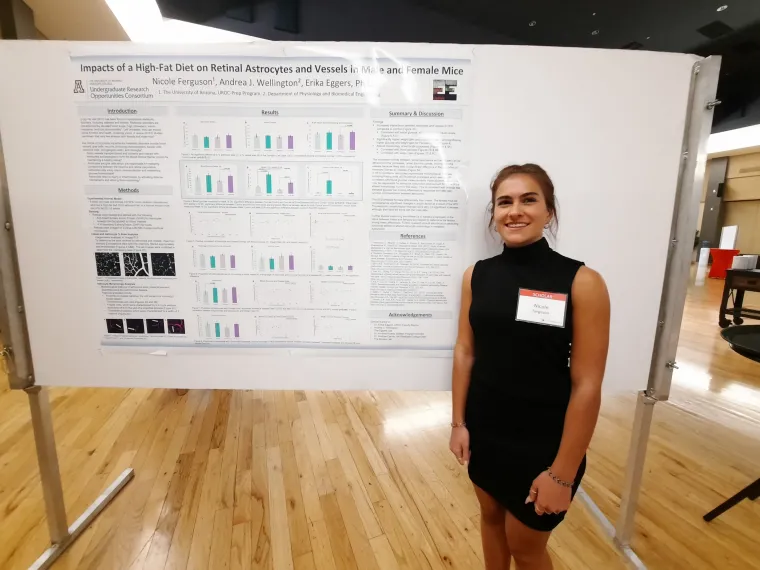Hildebrand Scholarship Recipients
Famesh Patel
Spring 2024 Recipient

Famesh Patel is the recipient of the $5,000 Hildebrand Scholarship, which is awarded annually to a student with upper-division standing and plans to pursue graduate studies in neuroscience or a life sciences-related field. Thanks to the prestigious Hildebrand Scholarship, Mr. Patel was able to join the Miller Lab over the summer and will continue to work in this lab over the upcoming academic year. Mr. Patel has been working on a project analyzing the impacts of alpha-synuclein aggregation on Parkinsonian-like vocal symptoms in zebra finches. Additionally, Mr. Patel has learned the techniques necessary for immunohistochemistry experiments where antibodies are applied to examine neuronal protein expression patterns in the finch brain and visualize them using confocal-like microscopy. Although the research is still ongoing, the data collected will be part of a scientific paper, which will be presented at the Society for Neuroscience 2024 and the W.A. Franke Honors Pinnacle Event, as well contributing to Mr. Patel’s Honors Thesis which focuses on Parkinson's Disease effect on vocal changes.
Rachel Becker
Spring 2022 Recipient

Receiving the John G. Hildebrand scholarship provided me the opportunity to figure out the apparatus I am using to test flies' memories in my honors thesis as well as explore other research projects. I was able to purchase an anemometer to monitor airflow in my apparatus and setup new tubing to optimize the setup. Additionally I was able to spend more time enhancing my research skills before applying to graduate school.
Nicole Ferguson
Spring 2022 Recipient

Thanks to receiving the Hildebrand Scholarship, I was able to join the Eggers Lab over the summer and have continued to work there this past Fall and current Spring semester. I completed a project analyzing the impacts of a High-Fat Diet on the inner retina of female and male mice. The Eggers Lab studies the impacts of metabolic disorders, particularly diabetes, on the retina. My research determined the morphological impacts of a high-fat diet on multiple cell types, including astrocytes and dopaminergic amacrine cells, as well as the retinal vasculature. I also was able to determine the differential effects of the diet on the sexes, and this research has continued and will be included in my senior Honors Thesis. I am incredibly grateful to have had the opportunity to engage with research in Neuroscience and Physiology and to have gained critical skills in conducting and analyzing research, as well as synthesizing scientific writing. I presented my research at the Galileo Circle Scholars luncheon this past Fall, and have included a picture at this event.

